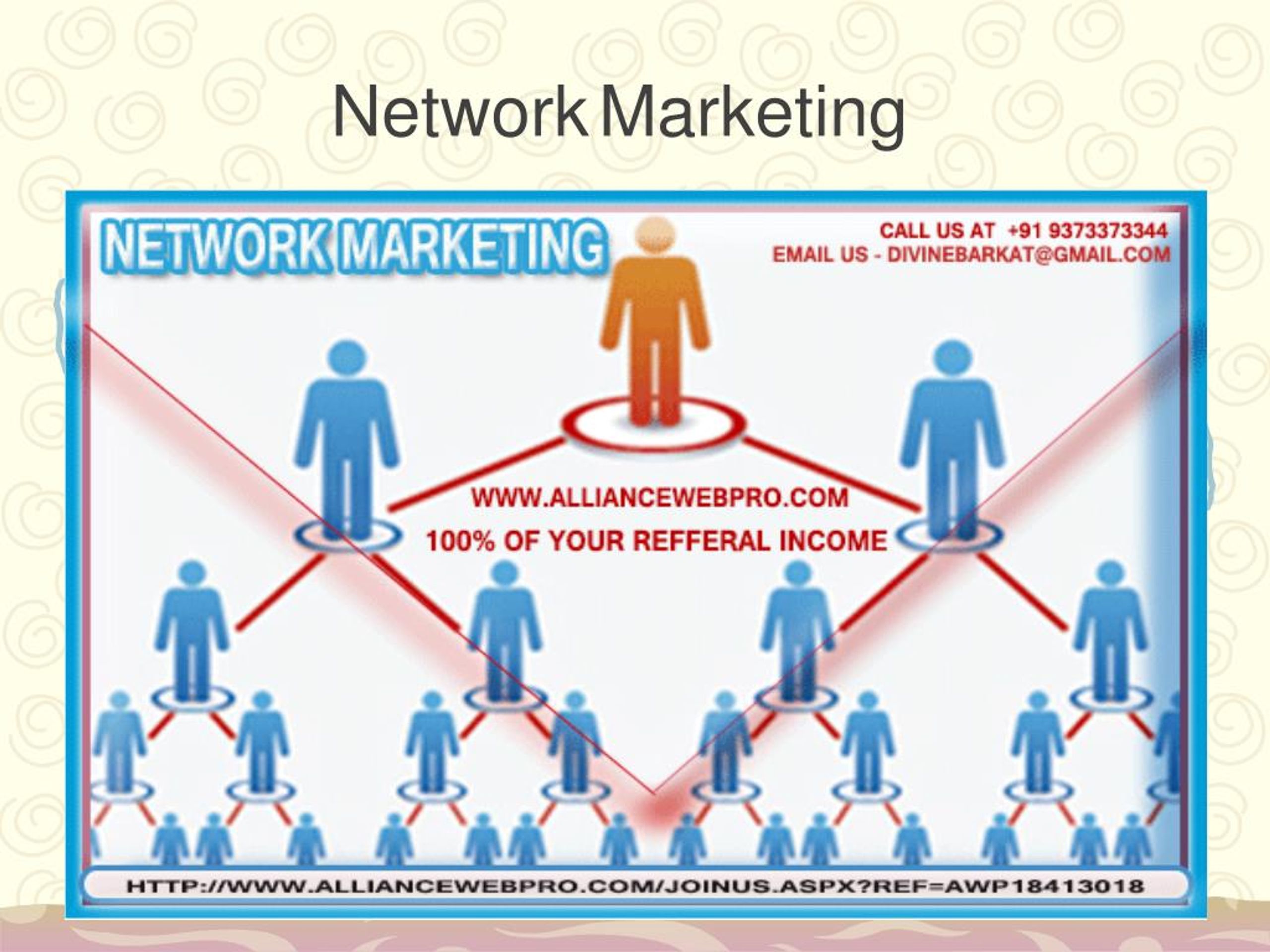Navigating the World of Multi-Level Marketing and Affiliate Marketing
The world of online marketing is vast and complex, with numerous opportunities for entrepreneurs and businesses to reach new audiences and increase sales. Two popular online business models that have gained significant attention in recent years are multi-level marketing (MLM) and affiliate marketing. While both models offer a way to earn income online, they differ significantly in terms of their structure, compensation plans, and marketing strategies. In this article, we will delve into the world of MLM and affiliate marketing, exploring their definitions, benefits, and key differences. By understanding the distinctions between these two models, individuals can make informed decisions about which path to take and how to succeed in the online marketing landscape.
For those seeking to understand the nuances of MLM and affiliate marketing, the question “what is the difference between MLM and affiliate marketing” is a common one. To answer this question, it’s essential to examine the fundamental principles of each model. MLM involves recruiting and building a downline of distributors, who sell products or services to customers and earn commissions on sales. In contrast, affiliate marketing involves promoting products or services from other companies and earning a commission on sales, without the need for recruiting or building a downline.
As the online marketing landscape continues to evolve, it’s crucial to understand the benefits and drawbacks of each model. By doing so, individuals can make informed decisions about which path to take and how to succeed in the online marketing world. Whether you’re a seasoned marketer or just starting out, understanding the differences between MLM and affiliate marketing is essential for achieving success in the online marketing arena.
What is Multi-Level Marketing: Understanding the MLM Business Model
Multi-level marketing (MLM) is a business model in which individuals become independent distributors for a company’s products or services. The MLM model is designed to reward distributors not only for their own sales, but also for the sales made by others they recruit to join the business. This creates a hierarchical structure, with distributors at the top earning commissions on the sales made by those below them.
In an MLM, distributors typically purchase products or services from the company at a discounted rate and then sell them to customers at a markup. They also earn commissions on the sales made by their downline, which is the network of distributors they have recruited to join the business. The downline can be several levels deep, with each level earning a percentage of the sales made by those below them.
Some well-known MLM companies include Amway, Herbalife, and Mary Kay. These companies offer a range of products, from cosmetics and skincare to nutrition and wellness supplements. MLMs often have a strong focus on building relationships and networking, with distributors encouraged to build their own teams and mentor others in the business.
One of the key benefits of MLMs is the potential for passive income. As distributors build their downline, they can earn commissions on the sales made by others, even if they are not actively selling products themselves. However, MLMs have also been criticized for their emphasis on recruiting over selling, which can lead to an oversaturated market and difficulty in making sales.
When considering the question “what is the difference between MLM and affiliate marketing,” it’s essential to understand the unique characteristics of the MLM model. While affiliate marketing involves promoting products or services from other companies and earning a commission on sales, MLMs involve recruiting and building a downline of distributors. This key difference can have a significant impact on the success of an online marketing business.
The Ins and Outs of Affiliate Marketing: A Beginner’s Guide
Affiliate marketing is a popular online business model that involves promoting products or services from other companies and earning a commission on sales. This model is often compared to multi-level marketing (MLM), but it has some key differences. In affiliate marketing, individuals partner with a company to promote their products or services, and they earn a commission on each sale made through their unique referral link.
The process of affiliate marketing is relatively straightforward. An individual joins an affiliate program by registering on the company’s website or through a third-party affiliate network. They are then given a unique referral link or code to track their referrals. When someone clicks on the link and makes a purchase, the affiliate earns a commission on the sale.
One of the benefits of affiliate marketing is its low startup costs. Unlike MLMs, which often require a significant upfront investment, affiliate marketing can be started with little to no initial cost. Additionally, affiliate marketing carries minimal risk, as the affiliate is not responsible for inventory or customer support.
Affiliate marketing also offers a high degree of flexibility. Affiliates can promote products or services from anywhere with an internet connection, and they can work on their own schedule. This makes it an attractive option for those who want to earn extra income or build a full-time online business.
When considering the question “what is the difference between MLM and affiliate marketing,” it’s essential to understand the unique characteristics of affiliate marketing. Unlike MLMs, which involve recruiting and building a downline, affiliate marketing focuses on promoting products or services and earning a commission on sales. This key difference can have a significant impact on the success of an online marketing business.
Some popular affiliate programs include Amazon Associates, ShareASale, and ClickBank. These programs offer a wide range of products and services to promote, and they provide tools and support to help affiliates succeed.
Key Differences Between MLM and Affiliate Marketing: A Side-by-Side Comparison
When considering the question “what is the difference between MLM and affiliate marketing,” it’s essential to examine the key differences between these two online business models. The following table highlights the main differences between MLM and affiliate marketing, including compensation plans, product ownership, and marketing strategies.
| Feature | MLM | Affiliate Marketing |
|---|---|---|
| Compensation Plan | Multi-level compensation plan, with commissions earned on sales made by downline members | Flat-rate commission on sales, with no commissions earned on sales made by others |
| Product Ownership | MLM members typically purchase products at a discounted rate and sell them to customers | Affiliate marketers do not own or purchase products, but rather promote them and earn a commission on sales |
| Marketing Strategies | MLM members often focus on building a downline and recruiting new members, in addition to selling products | Affiliate marketers focus on promoting products and earning a commission on sales, with no emphasis on recruiting or building a downline |
| Startup Costs | MLM members often pay a fee to join the company and purchase products | Affiliate marketers typically do not pay a fee to join an affiliate program and can start promoting products immediately |
| Risk Level | MLM members may be at risk of losing money if they are unable to sell products or recruit new members | Affiliate marketers are at minimal risk, as they do not own or purchase products and do not have to worry about inventory or customer support |
By examining the key differences between MLM and affiliate marketing, individuals can make informed decisions about which online business model is best for them. Whether you’re looking to build a full-time income or simply earn some extra money on the side, understanding the differences between MLM and affiliate marketing is essential for success.
How to Choose Between MLM and Affiliate Marketing: Tips for Success
When considering the question “what is the difference between MLM and affiliate marketing,” it’s essential to evaluate your business goals, risk tolerance, and marketing skills to determine which online business model is best for you. Both MLM and affiliate marketing can be lucrative options, but they require different skill sets and mindsets.
To choose between MLM and affiliate marketing, start by evaluating your business goals. What do you want to achieve through your online business? Are you looking to build a full-time income, or simply earn some extra money on the side? MLMs often require a significant investment of time and money, while affiliate marketing can be started with little to no initial cost.
Next, consider your risk tolerance. MLMs can be riskier than affiliate marketing, as you may be required to purchase products or inventory upfront. Affiliate marketing, on the other hand, carries minimal risk, as you do not own or purchase products.
Finally, evaluate your marketing skills. MLMs often require strong recruitment and leadership skills, as you will be building a downline of distributors. Affiliate marketing, on the other hand, requires strong marketing and promotional skills, as you will be promoting products to potential customers.
Researching companies and understanding their compensation plans is also crucial when choosing between MLM and affiliate marketing. Look for companies with a proven track record of success, a clear and transparent compensation plan, and a strong support system.
Ultimately, the choice between MLM and affiliate marketing depends on your individual goals, risk tolerance, and marketing skills. By carefully evaluating these factors and doing your research, you can make an informed decision and set yourself up for success in the world of online marketing.
Common Misconceptions About MLM and Affiliate Marketing: Separating Fact from Fiction
When considering the question “what is the difference between MLM and affiliate marketing,” it’s essential to separate fact from fiction and address common misconceptions about these two online business models. One common misconception about MLMs is that they are pyramid schemes, which is not true. Pyramid schemes are unsustainable business models that rely on recruiting new members with promises of high returns, rather than selling legitimate products or services.
MLMs, on the other hand, are legitimate business models that offer products or services to customers and reward distributors for their sales efforts. While some MLMs may have pyramid-like structures, this does not mean that they are pyramid schemes. In fact, many MLMs have been in business for decades and have helped millions of people earn a living.
Another common misconception about affiliate marketing is that it is a get-rich-quick scheme. While it is true that some affiliate marketers have achieved significant success and earned substantial incomes, this is not the norm. Affiliate marketing requires hard work, dedication, and a willingness to learn and adapt to changing market conditions.
In reality, affiliate marketing is a legitimate way to earn a living online by promoting products or services from other companies and earning a commission on sales. It requires a strong understanding of marketing principles, a willingness to learn and adapt, and a commitment to building a loyal audience.
By separating fact from fiction and addressing common misconceptions about MLM and affiliate marketing, individuals can make informed decisions about which online business model is best for them. Whether you’re considering MLM or affiliate marketing, it’s essential to do your research, understand the compensation plans and marketing strategies, and be willing to put in the time and effort required to succeed.
Real-Life Examples of Successful MLM and Affiliate Marketers: Lessons Learned
While the debate about what is the difference between MLM and affiliate marketing continues, there are many successful marketers who have made a name for themselves in both industries. By examining their strategies and tactics, we can gain valuable insights into what works and what doesn’t.
One notable example of a successful MLM marketer is Rachel Hollis, who built a massive following and earned millions of dollars through her work with Stella & Dot. Hollis’s success can be attributed to her ability to build a strong personal brand and connect with her audience through social media and live events.
On the affiliate marketing side, Pat Flynn is a well-known example of someone who has built a successful business promoting products and services from other companies. Flynn’s website, Smart Passive Income, has become a go-to resource for affiliate marketers, and he has earned millions of dollars through his affiliate marketing efforts.
So, what can we learn from these successful marketers? First and foremost, it’s clear that building a strong personal brand is essential for success in both MLM and affiliate marketing. This means creating a unique voice and aesthetic, and using social media and other channels to connect with your audience.
Another key takeaway is the importance of providing value to your audience. Whether it’s through creating high-quality content, offering exclusive promotions, or providing exceptional customer service, successful marketers understand that their primary goal is to serve their audience.
Finally, it’s worth noting that both Hollis and Flynn have been successful because they have been willing to put in the hard work and dedication required to build a successful business. There are no shortcuts to success in MLM or affiliate marketing – it takes time, effort, and perseverance to achieve your goals.
By studying the strategies and tactics of successful MLM and affiliate marketers, we can gain a deeper understanding of what it takes to succeed in these industries. Whether you’re just starting out or looking to take your business to the next level, there’s always something to be learned from those who have come before us.
Conclusion: Empowering Your Online Marketing Journey
In conclusion, understanding the differences between multi-level marketing (MLM) and affiliate marketing is crucial for anyone looking to succeed in the world of online marketing. By clarifying the key differences between these two popular business models, individuals can make informed decisions about which path to take.
As we’ve seen, MLM and affiliate marketing have distinct compensation plans, product ownership structures, and marketing strategies. MLMs often require a significant upfront investment and involve recruiting and building a downline, whereas affiliate marketing typically has lower startup costs and focuses on promoting products or services from other companies.
When deciding between MLM and affiliate marketing, it’s essential to evaluate your business goals, risk tolerance, and marketing skills. Researching companies and understanding their compensation plans is also vital to avoid common pitfalls and misconceptions.
By following the strategies and tactics of successful MLM and affiliate marketers, individuals can increase their chances of success. Hard work, dedication, and continuous learning are essential for achieving success in either industry.
Ultimately, the choice between MLM and affiliate marketing depends on your individual goals, preferences, and circumstances. By understanding the differences between these two business models and being aware of the potential benefits and drawbacks, you can make an informed decision and take the first step towards empowering your online marketing journey.
Remember, the key to success in online marketing is to stay focused, adaptable, and committed to your goals. Whether you choose to pursue MLM or affiliate marketing, the most important thing is to take action and start building your online presence today.


:max_bytes(150000):strip_icc()/MLM-TAERM-ADD-SOURCE-16091bd51da945f28fbd9522f5a173d6.jpg)


